Artwork
2021
Literary Art
Daniella Ciniglio
A Capitalist Critique on the Global Refugee Crisis
It tends to feel wrong giving an opinion on something that others struggle through but does not directly impact you. Increasing awareness on issues is important and necessary, but it puts something into perspective: Why me? What gives me the right to have my voice heard about a certain issue while those living and suffering through it everyday cannot. They are persecuted. They are displaced. They are silenced.
The first time I can recall hearing the word refugee was in my high school history class, as we briefly talked about how upsetting it was that Syria was being bombed and people’s homes were destroyed. As a class we glossed over our involvement as a country, as the Middle East was painted as some other worldly area that did not concern us. While I had the privilege to enjoy the fruits of capitalism and the imperialistic nature of American history as a middle class white person living in New York City, the refugee crisis continued to compound and remain inadequately addressed by our nation’s leaders.
It wasn’t until I came to college and started learning about human rights that my perspective on everything started to shift. As I discovered the origins of the United Nations Higher Commission for Refugees (UNHCR) and what led down the foundation for the Universal Declaration of Human Rights (UDHR), the gears in my brain kept turning, with something not sitting right with me. While this seemed like great progress, was any of it actually being upheld? Then it came to me: global capitalism and human rights cannot thrive symbiotically.
The systematic impact of economic factors entrenching the refugee crisis in the Middle East and North Africa region cannot be understated. In a global capitalist society, money makes the world go 'round, and at the expense of those at the bottom. With the modernization and developmentalism of the western world leaving out countries, it is inevitable that they are plagued with these issues at a disproportionate rate. The world as it is can be viewed through the lens of winners and losers- first world countries versus third world countries- with only the facade of help being presented.
How can there be progress in the MENA region if it is continuously exploited? Stating that refugees have human rights that must be protected fails to suffice as an end to the issue in itself, but rather depicts refugees as pawns in the capitalist system. Through the frame of mind of philosopher Immanuel Kant, refugees are a means to an end of a global problem which cannot be solved with a world entrenched in prioritizing capital gain over human lives. Countries all over the world will turn a blind eye to the refugee situation and ignore their part in it, regardless of their magnitude of involvement.
As capitalist production turns towards demanding a continuous supply of natural resources and cheap labour, the bottom of the global food chain is targeted and ravaged. Imperialism since World War 1 has reshaped national borders in the MENA region, ignored cultural and religious boundaries, lighting the match that ignited conflict and mass displacement while remaining bystanders. This global capitalist system holds the value of a dollar over the value of a human life, while those in power implement protocols and commissions without addressing the core issue at hand.
It’s really difficult to be a global bystander and feel helpless, not knowing where to turn or how to help. While I may not have the money, the prestige or the following, I have one important thing: my passion. I can spread my knowledge to others and enlighten them on this global issue, helping put our world into perspective. It’s unacceptable to be complicit in a society so destructive, so vile, so entrenched in capitalism. While I feel unworthy of speaking on behalf of unimaginable situations that global refugees face, it is with honor I can exercise my privilege while I hope and pray that someone listens.




